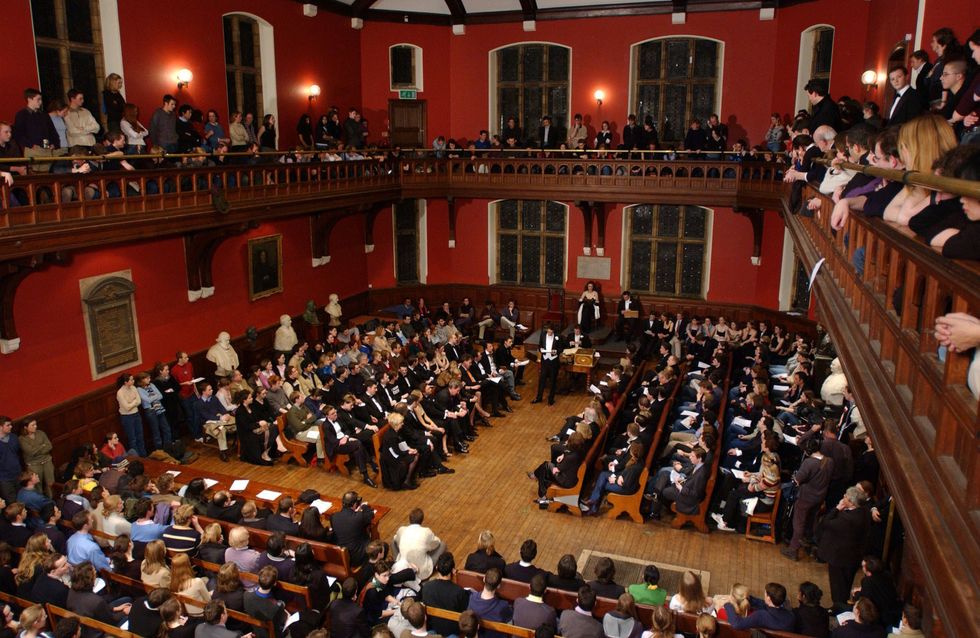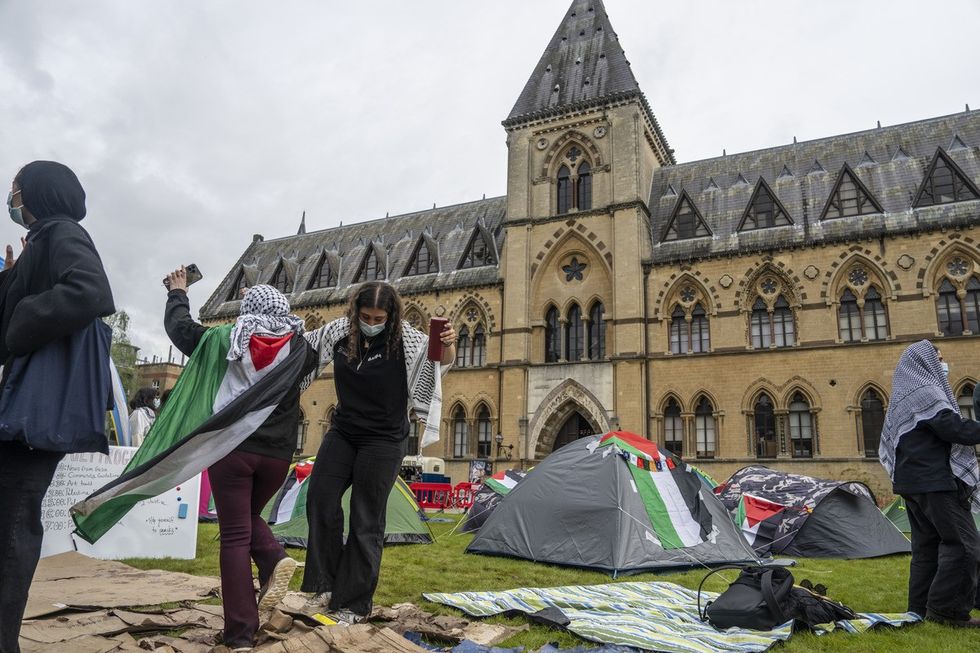Jewish students in Oxford speak out after ‘shocking’ union debate turned ‘terrifying’ – ‘Antisemitism is very normalised’
Jewish students in Oxford have spoken out following a “shocking” union debate that turned into a “terrifying” incident.
The event that took place on November 28 was debating the motion: “This house believes Israel is an apartheid state responsible for genocide.”
The motion passed with 278 votes for and 59 against, after a tense debate with speakers storming out and pro-Palestinian protestors chanting outside the chamber.
Boruch Epstein, a Jewish student present at the event, told The Telegraph that the atmosphere was scary.

“It was terrifying being Jewish in that room. I don’t think any of them would have actually attacked us, but it certainly felt like that in the moment. None of us left alone,” he said.
Epstein revealed that the nature of the debate itself was shocking, as was the audience’s reaction.
At one point, the audience was asked whether they would have reported Hamas’s plans to the authorities if they had known in advance in order to prevent October 7. The vast majority said they would not have done so.
Epstein said: “I have been a member of the Oxford Union for three years. I have never witnessed a debate like this. I have never been ashamed to be a member until that night.”
LATEST DEVELOPMENTS:
- Jewish NHS staff face rising antisemitism as incidents throughout Britain increase threefold
- Antisemitic abuse at unis hits new high as Jewish students left feeling unsafe
- Counter-terror police launch investigation after Oxford speaker praised ‘Hamas heroes’
Other Jewish students at the university expressed their worries about the spread of antisemitism in Oxford.
Lydia – not her real name – recounted how protesters outside the union used a sign that read: “Zionists not welcome on campus,” and how her friend was harassed by a stranger for being a “zionist.”
She said: “A few nights after the debate, I was in the queue for a nightclub when my friend was harassed by someone they didn’t know shouting, ‘She’s a Zionist,’ to a group of us. My friend hasn’t expressed political views around the university, let alone had ever engaged with the accuser. She knows that the girl has seen her before with her visibly Jewish boyfriend, who wears a kippah”
A recent graduate from the university also shared her views. She said although she believes in free speech, she’s noticed a pattern of hateful rhetoric towards Jews.
“The Oxford Union this term has been the natural culmination of a year of hate,” said Sarah.
“I believe in free speech and would have no problem with any of these speakers being invited on their own, and challenged, but we can’t pretend there isn’t a pattern here.”
“I know people who cheered Hamas as the resistance. I know people who’ve said all Israelis are complicit. I know people who said that it’s justified to kill civilians. This is not a new problem.”
She added that antisemitism was already rife on campus before October 7, with students claiming the “Jews control the media,” but said it’s now becoming normalised.
This past May, student Madeline Bryant announced in an open letter that she was leaving her post as junior common room vice-president at St Hugh’s College citing the “blatant antisemitism” she has experienced.

That same month, a group of anonymous Jewish Oxford students wrote to senior members of the university accusing the institution of promoting “conspiratorial narratives” as well as failure in reporting procedures.
The letter listed 70 alleged incidents and said the university was becoming a “no-go area” for Jews and Israelis. They said when they attempted to raise concerns with their heads of programme they were “simply advised to leave Oxford.”
Just two weeks after the letter and during the pro-Palestine encampments, swastikas were discovered drawn in toilets at Regent’s Park College.
At the same time, students say other universities are also facing a huge issue with antisemitism, and that it isn’t just Oxford.
“I don’t think Oxford is necessarily more or less anti-Semitic than other universities. I have sisters at Manchester and it’s truly awful there. Even though the Oxford Union has nothing to do with the university, what happens there doesn’t help the atmosphere more generally,” said student Emilia.
In the aftermath of the union debate, 300 signatories wrote to the incoming Oxford chancellor Lord Hague, expressing their concern and questioning whether praise for October 7 was against the law.
Sir Vernon Bogdanor, one of the signatories said: “I believe the university needs a specific document on antisemitism and not just one on racism, which is too general. We need strong punishment for people guilty of it.”
Echoing Emilia’s views, Bogdanor also said antisemitism was not an issue specific to Oxford.
“It’s not just Oxford,” he said. “If the universities’ vice-chancellors won’t deal with it, the Government should. It’s a public issue.”
David Rich, the director of policy at the Community Security Trust, an organisation that supports the safety of British Jews said: “Universities need to do much more to show their students that this kind of behaviour is unacceptable and goes against the principles of what it means to be at a university and take action, not just words.”
He added: “There has to be a cost to being antisemitic. There is a social cost for some Jewish students to be Jewish. That cost needs to be transferred to the people being racist towards Jews.”
An Oxford spokesman said: “Oxford University thoroughly rejects and condemns anti-Semitism, and has clear policies spelling out there is no place for unlawful discrimination of any kind here.
“We are committed to ensuring that all students feel safe and included, and we investigate all formal complaints made about harassment or discrimination at the university. We have taken steps to urge Jewish students in particular to report such incidents when they occur.”

